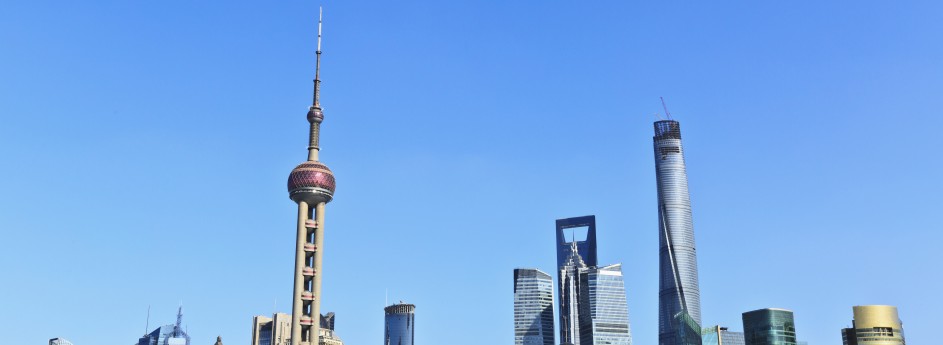Growing European Backlash Against Chinese Investment
In early September, a piece was posted on this blog on the need for reciprocity in investment between China and Canada. Recently, following Chinese appliance giant Midea Group’s takeover of German robot maker Kuka AG, the German government is looking closely at increased oversight of foreign cum Chinese investment in the entire EU.
In the backdrop of growing protectionist sentiment around the world, especially in economically developed nations, China will surely face increasing scrutiny of its investments in key sectors of the economy, particularly those involving advanced manufacturing, technology and information systems.
While recent policy pronouncements by the Chinese government on opening up more sectors to foreign investors is an encouraging sign, China must do more to entice foreign investment, removing impediments in non-strategic sectors of the economy. More must be done to whittle down the ‘negative lists’ in China’s free trade zones and spread that experience to the broader economy. It is in China’s interest to do so given its need to feed a rapidly growing consumer market and to reduce/prevent protectionist backlash overseas.
Germany is seeking tighter control over foreign investment in European companies, in a sign of a growing protectionist reaction to China’s appetite for overseas acquisitions.
Spurred by the purchase of German robot maker Kuka AG by China’s Midea Group Co., Chancellor Angela Merkel’s deputy, Sigmar Gabriel, is calling for European Union measures to give national governments expanded powers to block or impose conditions on shareholdings of non-EU companies. He’s found an ally in EU Digital Economy Commissioner Guenther Oettinger, a German who’s a member of Merkel’s party.
“It’s absolutely right to initiate this debate at the European level,” Oettinger said in an interview last week. “Everybody has to play by the same rules. Clearly, there are many countries, including big ones such as China, that make market access or corporate takeovers difficult or effectively impossible.”
While Merkel hasn’t publicly backed her vice chancellor’s push, Gabriel’s proposal reflects growing resistance within her government to unfettered Chinese investment in Europe’s biggest economy. In the latest potential Chinese bid, lighting maker Sanan Optoelectronics Co. Ltd. said it had held talks with Osram Licht AG on a possible acquisition of the almost century-old German company.
The initiative by Gabriel, who also is Germany’s economy minister, calls for allowing EU member states to step in if a non-EU investor seeks to acquire more than 25 percent of the voting rights in a company, according to a government document obtained by Bloomberg. Restrictions would potentially kick in if the home country restricts foreign investment or its government orders or funds the acquisition.
– Bloomberg on Yahoo Finance
http://finance.yahoo.com/news/german-momentum-grows-curbs-chinese-220001780.html;_ylt=AwrXgCOpew1Y.kMAepDQtDMD;_ylu=X3oDMTBzdmVvZmlwBGNvbG8DZ3ExBHBvcwMxMAR2dGlkAwRzZWMDc3I-
Organ Transplants in China
Notwithstanding the preposterous accusations made by Falungong groups in Canada and elsewhere that the Chinese government systematically harvests the organs of the cult’s followers, accusations that have even been disparaged by ardent anti-China hacks like deceased ‘laogai’ critic Harry Wu, the recent case of a Canadian patient receiving an organ in China after only a short three-day wait sheds light on the need for continued reforms to the current organ transplantation system in the country.
The case raised alarm bells at the Montreal-based Transplantation Society, a NGO that serves as an international forum for the worldwide advancement of organ transplantation. The issues at hand are whether China is meeting its pledge to ban the harvesting of organs from executed inmates made in January 2015 and to what extent does corruption in the system come into play regarding so-called ‘black-market surgeries’ that still occur. In any event, their numbers and the way organs are procured are a far cry from that alleged by international anti-China groups.
Speaking at the plenary session of the 26th international Congress of the Transplantation Society held in Hong Kong last August, Huang Jiefu, director of China’s Organ Donation and Transplantation Committee and a former vice-minister of Health, disclosed that doctors performed 10,057 organ transplants in China last year, about 8.38% of the world total. According to official records, 2,766 organs were donated in 2015, more the total in the two previous years combined. In the first seven months of 2016, 2,152 cases were recorded, up over 49% over the same period last year, with the final tally expected to meet or exceed a total of 4,000 by the end of the year.
The demand for useful organs is massive in China with round 300,000 patients a year waiting for them. The country performs the world’s highest number of organ transplants after only the US. The government readily admits a major shortfall in the number of hospitals and doctors capable of performing transplants. China’s need remains dire in spite of the fact that Chinese donation rates leads Japan and most other Asian countries and donations are the third highest globally albeit far behind the US and most Western nations. In part, this stems from conservative Confucianist ethical beliefs about maintaining the integrity of the body after death along with ingrained cultural biases against organ donation.
In the Canadian case, which happened just prior to the Hong Kong convention, the Tranplantation Society immediately notified director Huang calling for a thorough investigation. In a sign considered positive by the Society, Mr Huang’s officials revoked the licenses of the physician and the hospital involved as they launched a criminal investigation into the allegedly illegal transplant. “Because China is a big country with 1.3 billion people and regional development is uneven, occasional legal violations are unavoidable”, director Huang admitted to reporters at the conference.
Since 2007, China has cracked down on 32 illegal intermediaries, arrested 158 suspects, investigated 17 medical institutions revoking the licenses of 44 medical staff and significantly, shut down 13 ‘black-market dens’, Mr Huang reported to the Society congress. In spite of such successful criminal prosecutions, however, Mr Huang stressed there is a continuing need to forcefully crack down on organ trafficking while legislating more regulations to deal with how organs are procured. A donor registry was piloted in 2010 and has been expanded into a nationwide system. The government has also been encouraging donations with major newspapers publishing positive stories of families donating their loved ones’ organs.
Dr Michael Millis, a transplant specialist at the University of Chicago who has visited several dozen transplant centers in China said before, doctors at those centers used to routinely schedule surgeries but nowadays, they could have multiple surgeries in a single day and then go for a stretch without any. To Dr Millis, that indicates they are operating on the up and down schedule of a system supplied through voluntary donations rather than depending on regular executions of death row inmates. As for allegations of an extensive network of ‘black market dens’, Dr Millis responded, “there is no evidence it is an extensive black market parallel system that would generate a large number of organs from executed prisoners.”
Other doctors stated the recorded usage of drugs given to transplant patients were in synch with China’s reported number of transplants. Dr Francis Delmonico, a professor at the Harvard Medical School and a renowned transplant surgeon remarked, “it is not a matter for us to prove to you that it’s zero…it’s a matter for the government to fulfill what is the law, just as it is in other countries of the world that we go to.” Dr Jose Nunez, an organ transplant advisor to the World Health Organization (WHO) held high praise for China’s progress. “You are taking the country to a leading position within the transplantation world”, he congratulated Chinese participants at the conference.
China’s Aviation Market WIll be World’s Largest by 2024
China is set to overtake the U.S. to become the world’s largest aviation market by passengers by 2024 as more people take to the skies domestically and internationally, according to the International Air Transport Association.
The number of people flying to, from and within China will almost double to 927 million annually by 2025, from 487 million last year, according to forecasts from IATA made in an e-mailed statement, and reach 1.3 billion by 2035. In comparison, passengers in the U.S. will increase to 904 million by 2025, from 657 million last year, according to the predictions.
– Bloomberg



